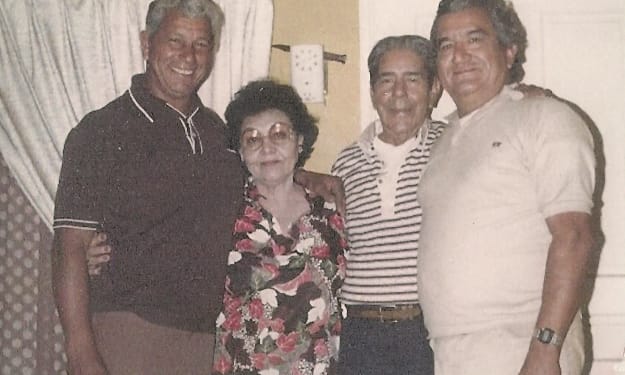Rhapsody and Indifference: Sexuality and Families
By Risa Peris

D.H. Lawrence is a writer who seems both known and unknown. Most of us who took literature in college or who were assigned The Rocking-Horse Winner in high school, know of Lady Chatterley’s Lover and its scandalous history. I read it at fifteen and have read at least eight years in between since then. My attitude towards the “banned” sex in the novel changes every time I read it. During my last read, it seemed less rapturous and the sex seemed odd; that is likely due to time and experience and the realization that the novel speaks more to class than sex. I remember being on a date years ago with an English man and he said the most shocking thing about the book was that the Lady of the Manor “stooped” a “yardsman”. Some people (and professors are people) abhor him and yet I am always engrossed by his books, poems, and short stories. He is profoundly good at describing the internal life of a person. My latest read is “Rainbow”. It has little dialogue, but it is sumptuous in its descriptions of the characters' inner thoughts and desires. It is about family and the steel thread of sexuality that supports each generation.
It is something we don’t talk about. Sexuality in families. Or maybe some of us do in the therapist’s office. It is a taboo topic. An unwelcome topic at Thanksgiving. An unwelcome topic at the summer BBQ over Chardonnay and burgers. However, it is the driving force of families. Without sexuality, there would be no us.
I’ve recently been investigating the family tree, framing photos and marriage certificates, creating a scrapbook, signing up for Ancestry.com, and wracking my brain for stories told by my father and mother who are both deceased. What was it that attracted one family member to another? I’ve even begun diving into the depths of my fiance’s family as I work on his scrapbook. The writer in me is a little obsessed with the trajectory of life giving and children raising. In “Rainbow” we learn intimately of each family member’s sexual life. It’s a torrent of words and desire and, as readers, we get front row seats to the deepest thoughts of each character.
Yesterday, I found a photo of my maternal grandparents, Claude and Annie Lou Campbell from Madison County Alabama, who packed up and went to Imperial Valley, Brawley in California during the Depression. They died before I was born. I knew my grandmother had ten children and that my mother was the last. She had siblings having children before she was even born. I stared at the photo. It has a 1960s gloss to it and their clothes seem to harken the 1950s. Grandparents? Ten children? My grandmother is smiling widely and my grandfather, with his chiseled bones, looks a little gruff and also content to be so close to my grandmother.
My mother, also deceased, was a lousy historian as I am beginning to confirm. Mother painted a bleak picture of my grandparents. A cousin, however, has a rosier view of them. If my mother’s stories are to be believed, my grandparents were abusive, angry, and miserable. None of that is detected in the picture I found. Ten children. Were they conceived in rhapsody or was my grandmother simply passive in grandfather’s actions? The writer in me wants to know, but the grandchild in me feels a rising disgust. Where does that disgust come from? We’ve all felt it. Thinking of our parents copulating on a Sunday morning with the bedroom doors locked. That is my fiance’s memory. Mine was simply the door locked denying me entry to where I wanted to be. As a young child, when I would enter a room my father would exclaim “here comes trouble”. He got me a t-shirt in red with iridescent letters sparkling the phrase. I liked to sleep with my parents. I also did not like my mother to touch my father. Some part of me thought my father could have done better. Late at night, I would open their door and crawl in between them. “Here comes trouble,” I would say. “You sure are trouble,” my father would retort sleepily. Mother was always unhappy with me in the bed. Unhappy doesn’t quite describe it. Some demon voice would emerge from her and a torrent of unkind words would follow. I didn’t care. I was with my father and I had separated them. Years after my father died, my eldest sister asked my mother if she had sex a lot. My sister stared at me angrily. She knew about my nightly forays. My mother laughed. “The trouble girl wouldn’t let us,” said mother with a sad look on her face. I was the trouble girl. I was a teenager at the time and I felt revulsion. Blah. My parents having sex. I had read every romance book on my mom’s bookshelves. Was it rhapsody between them? Why the revulsion? I was conceived in passion. I know that. That is something to be proud of. There seemed to be no passivity. I know this because my mother said so and I immediately covered my ears and yelled, “I’m not listening.” Oh, I listened though. A part of me felt relieved that there was love between my parents. Not every child can say that.
Looking at my maternal grandparents photo, I think that all ten children were conceived in the heat of summer when the fireflies emerged and the clan was outside playing in the creek, catching tadpoles, and sipping on the fresh lemonade my mother used to make (it was a passed down recipe). The photo. My grandmother’s face is beautiful in its joy. Now that I am nearing an age I won’t disclose (a woman needs at least one secret), relatives having sex seems less shocking. It’s important to know if you were conceived in joy, boredom, or terror. And all the others? Does love run thick in your family? Or does indifference reign? You should know. You should ask. You should ponder photos. Why? We are sentient beings let loose on a life full of desire, hatred, and exploration. Knowing the physical love in your family completes the family picture and paves the way for the status of your own life. Are you satisfied with your relationship? Are you lacking in rhapsody? Is there indifference brewing with your husband or wife? How would this affect your children, if you have any?
I’ve decided to be childless. The bloodline of my mother and father ends with me. There are still so many relatives on both sides. All procreating and continuing the maternal and paternal family lines. My mother has not disappeared. My father has not disappeared. A part of me always clung to the idea that there was indifference in my family. I know it’s not true now, but imagining my mother passive to passion helped curb my own issues with intimacy, partly born of family and partly born of strangers. Accepting that there was sexual love between family helps you accept it into your own life. I’m not childish about family sexuality any longer. I want to know. I need to know. You need to know about your own family. Your happiness hinges on it.
About the Creator
Risa Christy Peris
I dream of having a chicken sanctuary, a sloth as a walking partner, and a refrigerator full of cheesecake. I love polka dots, mixing cocktails, and mysteries – from Sherlock Holmes to the quirkiness of quantum stuff.






Comments
There are no comments for this story
Be the first to respond and start the conversation.